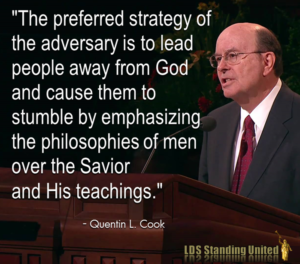You might remember from childhood the Hans Christian Anderson tale of the Emperor who was sold some clothing that was so amazing that only the enlightened could see it. In his vanity, he parades around naked until a little boy points out that he has no clothes. In the original tale, the Emperor was obviously deceived by those selling him the clothes and revealed as the fool that he was. The people finally see the truth after this child speaks up.
We are now living this story, with a new twist. And without the insight that comes to most children who hear it, or the happy ending of everyone finally seeing the truth.
The Emperor is Naked!
Yes, the Emperor really has no clothing. He is naked. This is the truth. He is also a he, showing very plainly his man parts. This is the reality.
But this is not what everyone believes. They, like the vain Emperor himself, have been convinced that not only is he not naked, but he is really a she. The enlightened ones see a beautiful woman, clothed in the most amazing ball gown, with glorious hair and makeup, and accessorized with high heels, jewels, and a tiara. She is gorgeous! And they fawn and rave. They call “her” a Queen, of course using the preferred pronouns.
One must wonder, who it is and how they have been able to convince the Emperor that clothing that is in reality not there, not only exists, but is beautiful. And more significantly, that his manly body has somehow been transformed into a female body by these magical clothes. But this is what he has come to believe.
Those in the crowd all want to be not only in the Emperor’s good favor, but also to be seen as on the right side of things. Even though they don’t see any clothing themselves, they insist that they do, so as to not appear to be unenlightened. They get caught up in the praise of the Queen’s amazing attire, even trying to outdo each other to reaffirm that they are on the right side – or maybe to keep trying to convince themselves.
One Little Boy
But there is this one troublesome little boy. He sees the Emperor’s man parts and knows what they are because he knows he is a boy and has them too. He dares to speak the truth.
At first, the crowd tries to educate him. He is obviously not enlightened like they are. He apparently is getting some misinformation from the wrong sources – meaning he is not listening to them. They point out to him all of the invisible details that prove that before them is the most beautifully dressed Queen. He doesn’t see it, because the clothing is not there. And the man parts are.
When he doesn’t get enlightened, they try to shame this boy. He is bad for not affirming the Queen’s beauty. If he doesn’t join them in showering compliments, then he is harming “her” – how horrible of him. How disrespectful, even hateful. As if he, a little boy, has some power over the one with all of the power.
When he persists, they turn to making him the problem. He is crazy if he can’t see what the enlightened see. And it is their duty to shut him up. They can’t allow him to cause anyone else to question what they are seeing – or not seeing. So they must convince him, and everyone in the crowd, that he is delusional, and thus dismiss him. They may convince the crowd that he is crazy, but this little boy knows that he is not. He knows what he sees.
He is persistent. So now they turn to threats. If he doesn’t shut up, he will be removed and punished. They must maintain the illusion to maintain order and power. So they finally remove him, but he leaves behind questions in the minds of some of the crowd. They really also see a naked man. They know the boy was right. But they don’t want what happened to the boy to happen to them, so they go away quietly.
Until maybe one day, after some quiet conversations between members of the crowd where they can admit among themselves that they were wrong and the boy was right, some might gain the courage that this little boy had.
Maybe?








